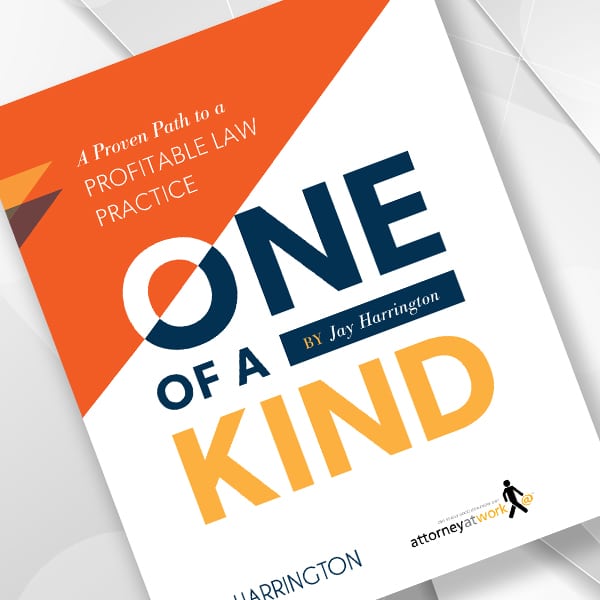Table of contents
For young lawyers in today’s market, to borrow a phrase from Dickens, it’s the best of times and the worst of times. It’s the “worst of times” because there’s no place to hide. Clients are less willing to pay for young associates’ time (which some clients view as “on-the-job training”). Law firms can’t afford to put up with mediocre performance. Firms expect more value from their associates because clients are expecting more from them.
Things are changing so fast that young associates today face challenges that others before them did not. During the “good old days,” it was comforting to hear you just needed to keep your head down and do good work and everything else would fall into place in due time. There was relief in thinking there was plenty of business to go around for talented lawyers, so there was no need to worry about business development. Today, any comfort derived from such advice is false.
On the other hand, these are the “best of times” because it’s during moments like these when things get tough, that merit matters most. Young lawyers today have the chance to achieve stand-out success like never before. Online, there are fewer gatekeepers and those that remain have less influence. A small firm, small market, entrepreneurial-minded young lawyer can leave just as big of a footprint in the digital landscape as anyone else.
Want to Make a Significant Impact as a Young Associate?
There’s little to stop you, except your own limiting beliefs about what’s possible. Heading into 2023, with a bit of experience under your belt, you can take steps to accelerate your path along the profession’s learning curve. Here are three areas to focus on if you want to get off to a fast start in your legal career.
1. Take Ownership
One of the best ways young associates can demonstrate value is to take ownership of all aspects of their work. Taking ownership of all you do reflects an understanding that your superiors don’t want to micromanage you. They are busy and trying to keep their heads above water, too. They understand the challenges you face at this point in your career and most are willing to help. But make no mistake: From day one, they expect you to take ownership of your projects. Key steps when you’re taking on an assignment:
- Find out the deadlines for each task. Brief back the assigning attorney on your understanding of the objectives to make sure you are on the same page.
- Ask lots of questions, but only after thinking through the issues. Many young associates are too eager to approach superiors for help before attempting to solve the problem themselves. If you have questions, get them all gathered at once, ask for a meeting time, and be thoroughly organized so as not to waste the other person’s time.
- See the big picture. Taking ownership involves not merely completing the discrete task that was assigned (although that is the first priority). It also means thinking beyond the task and anticipating future needs. This requires having a broader view of the case or matter that you’re working on, and not wiping your hands clean once your immediate task is complete.
2. Co-Author Articles With Partners
Building mastery as a lawyer and building a book of business both take a long time. You can’t focus on one or the other in isolation. There’s an old Russian proverb that states: “If you chase two rabbits, you will not catch either one.” But when it comes to advancing in a law firm, you have no choice but to be smart and agile enough to work on both in unison.
As a young associate, it’s easy to ignore the urgency of the need to build a practice. After all, it’s likely been drilled into your head that your most important responsibilities are to work hard, bill lots of hours, and do high-quality work. And, of course, it’s easier to procrastinate than it is to take action. So the hard work that should be done today to start laying the foundation for future business development success is put off until some undetermined point in the future.
It’s going to be a while before most who are in their first year of practice will be in a position to bring in clients. Nonetheless, you can do a number of things now to increase opportunities for success in the future. One of the best ways to get started is to co-author thought leadership articles with partners in your firm — for publication on your firm’s website or, ideally, on a third-party platform. The process of writing thought leadership articles will help hone your expertise in different subject matters. It will also help you develop your digital footprint, which will make you more visible when you are ready to engage in more active business development. Perhaps most important, by co-authoring articles with partners, across offices and practice areas, you’ll build beneficial relationships in the firm that will pay dividends down the road.
3. Exhibit Resilience
One of America’s most famous innovators, Thomas Edison, failed all the time — or at least that’s how it appeared to the outside world. It’s said that Edison created nearly 10,000 unsuccessful prototypes before finally refining a commercially viable lightbulb. Of this work, Edison said, “I have not failed 10,000 times. I have not failed once. I have succeeded in proving that those 10,000 ways will not work. When I have eliminated the ways that will not work, I will find the way that will work.”
Many young lawyers are uncomfortable with the idea that embracing failure is a catalyst for growth. Their lives have been marked by achievement in academic environments that only reward success. They’ve become perfectionists who abhor the idea of failing. As a result, they shy away from risk and tend to stay in their comfort zones. A big difference between the lawyer mindset and the entrepreneurial mindset is that successful entrepreneurs understand they need to fail their way forward, while lawyers often avoid failure at all costs.
The problem is, as a young lawyer you’re going to make mistakes. What’s important is being prepared for the fact that if you’re growing, stretching and expanding your capabilities by taking on an ever-increasing level of responsibility, you will fail from time to time. There is no way around it. Learn to be resilient in the wake of failure, rather than being paralyzed by it when it happens — or allowing it to stop you from acting in the first place. (See “Survival Skill No. 1 for New Lawyers: Emotional Resilience” by Link Christin.)
When you make a mistake, own it, and then come back stronger than ever.
How Success Is Like an Iceberg
Many of the lessons you will need to learn to become an excellent lawyer will come to you through struggles and mistakes. Growth will come slowly, which is why patience and a long-term perspective are required. You may be feeling disheartened because the passion you thought you had for the practice of law is waning as the realities of the challenging career you’ve chosen are setting in.
Keep moving forward.
As you improve your skills and your autonomy grows, your passion for the practice of law will grow as well. Just stay confident and put in the hard work required to get to the other side where greater rewards await.
In this sense, success is like an iceberg. Only a small tip of an iceberg is visible above water, while the great mass lies hidden below the surface. The same is true of success. It’s often easy to recognize an outcome but not always the hard work and dedication required to achieve it. Keep this in mind as a young lawyer. The work you put in now, which may feel like thankless drudgery at times, will pay valuable dividends down the road. Step up and get started now, but don’t expect everything to happen all at once. It’s the consistency of your efforts that will make all of the difference.
Illustration ©iStockPhoto.com
Keep Reading …
- “17 Things I Wish I Knew as a First-Year Associate” by Jay Harrington
- “Survival Skill No. 1 for New Lawyers: Emotional Resilience” by Link Christin
- “Advice to New Associates on Becoming a Rainmaker” by Mike O’Horo
- Getting Clients: For Lawyers Starting Out or Starting Over by Merrilyn Astin Tarlton
- “Business Development Starters for Associates” by Sally Schmidt
- Ultimate Marketing Checklist for New Associates (Revised and Expanded) by Ross Fishman
- “Associates: Read Your Way to Business Development Success” by Jay Harrington
- “Build It! A Business Development Guide for New Associates” (Free eBook)
ONE OF A KIND
A Proven Path to a Profitable Law Practice
Almost every lawyer wants to command higher rates and attract more clients. But many are stuck pursuing ineffective strategies. Others don’t even know where to start. In his popular book, lawyer-turned-legal marketer Jay Harrington lays out a path for building a one of a kind, profitable niche practice.

















